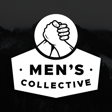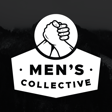
From People Pleaser to Authentic Self: A Transformation
In this compelling episode of The Integrated Man Project titled "From People Pleaser to Authentic Self: A Transformation," host Travis Goodman is joined by Cowan Austrie, Personal Trainer at The Studio Montreal, who delves into his personal journey of self-improvement through vulnerability and emotional honesty. Here are three key points from their discussion:
1. **Changing Behavioral Patterns**: Cowan shares his experience with restructuring his behavioral patterns as he fights to overcome PTSD and past trauma. By adopting new behaviors like setting healthy boundaries and being open to showing vulnerability, Cowan highlights the struggles and rewards of rewiring his brain for healthier emotional interactions.
2. **Embracing Vulnerability and Its Impact**: The conversation deepens into the significance of being vulnerable as a means of breaking down barriers in personal and professional relationships. Cowan discusses how embracing vulnerability has not only helped reduce his own emotional burdens but has also encouraged more authentic connections with those around him.
3. **Shifts in Coping Mechanisms**: Cowan details his awareness around certain coping mechanisms that were not holistically healthy or effective to adopting healthier practices such as meditation and breathing techniques. This transition has played a crucial role in his daily routine, helping him manage emotions more effectively and bringing about a significant positive impact on his overall mental health.
Throughout the episode, Travis explores these themes with Cowan, offering insights and advice for anyone looking to improve their well-being through a more integrated approach to mental health.
JOIN THE MAILING LIST & GET INVOLVED!
WATCH ON YOUTUBE:
Connect and Support Cowan:
IG: cowan.austrie
Connect and Support Travis:
YouTube: Travis Goodman
Instagram: @integratedmanproject
Check out the Website: TBD





